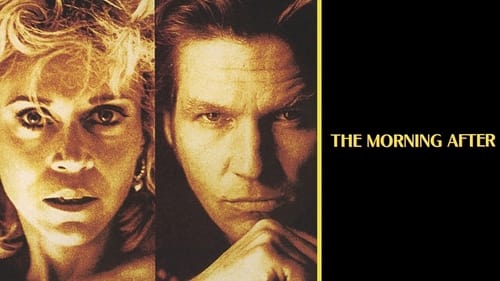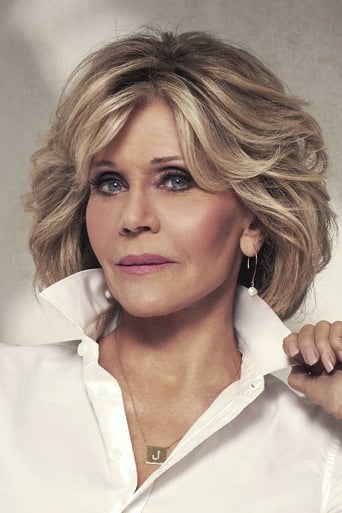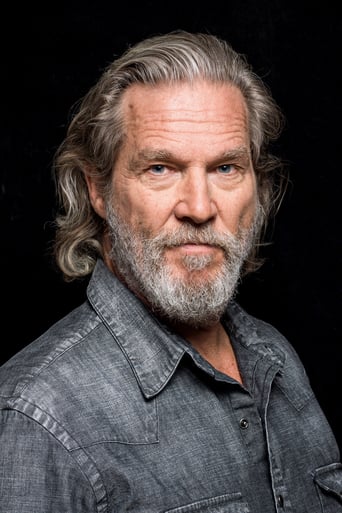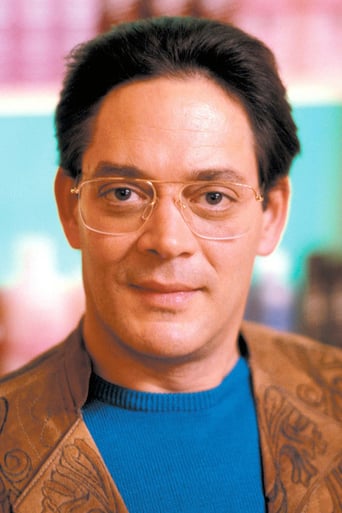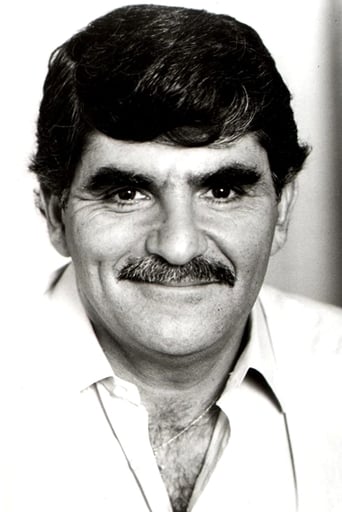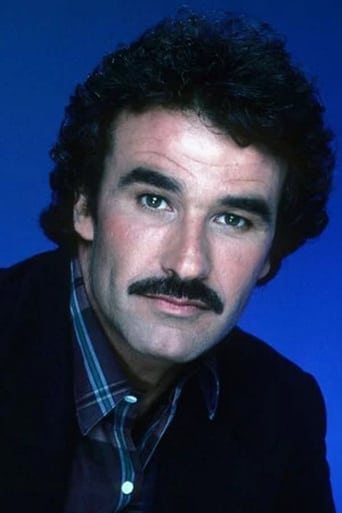daoldiges
Fonda and this film both look good, she as a haggard, fas been alcoholic, and sunny Los Angeles nicely photographed. Bridges also gives a solid performance in this story that starts off on good fitting but gradually grows thinner as it progresses. The final disappointment is the films weak ending. If you love Fonda and/or Bridges you might still enjoy this film, but for others I wouldn't go out of my way and seek it out.
jzappa
The Morning After opens with an extraordinarily effective scene prototypical of director Sidney Lumet's pared-down building of tension. As Jane Fonda crawls out of bed, we sense her hangover, one of those inordinately miserable mornings when nothing about you is sufficiently functional, and we also sense how accustomed she's become to these mornings as she is not only passably functional but also recognizes herself in the mirror and indeed spills some gin into a glass, speculating about the guy in her bed. Who is he? She doesn't comprehend the true gravity of her predicament until she turns him onto his back. She sees no cop is going to buy her story, so she attempts to remove all the evidence of her stopover. And then she rambles back out, into the intense Los Angeles light. And in a shot from high overhead, she seems like a lab rat, ensnared in some sort of a experiment. It's so well directed that we almost forget how preposterous it is to think this frame-up would ever work. This beginning promises an exceptional thriller. Alas, The Morning After never matches its initial potential, not as a thriller, at least. The narrative has some gaping disparities in it, and thrillers need to be impermeable. This one chalks various elements up to pure coincidence, the ultimate motives are flimsy at best and the fact that the body keeps reappearing like a cartoon or a take-off on The Trouble with Harry brings the movie too close to qualifying as '80s schlock for one to become seriously absorbed in the plot. But The Morning After merits a look anyhow, owing to the characters that it cultivates, and the performances of Fonda and Jeff Bridges in the two leads. She plays an alcoholic actress long past her heyday. He plays an ex-cop who happens to be fixing his car right where she topples into his back seat and implores him to get her away from there, quick. Bridges stays in a petty, manufactured shed, where he repairs appliances. This is all Fonda needs. She's a veteran of the live-fast-die-young subscription, her friends all bartenders and drag queens, her separated husband Raul Julia the most upmarket hairdresser in Beverly Hills. Nevertheless Bridges is reliable and sound, and she could do with a friend. Naturally it's axiomatic that they fall in love. The plot of The Morning After is not nearly as well captured or interesting as the day-by-day grinds of these characters. Actually, I can picture a movie that would omit the murder and just trail the genuine human development between Fonda and Bridges. The thriller filler isn't needed, although given that they used it, couldn't they have made it credible? The entire murder plot gets such slapdash treatment that perhaps I oughtn't have been startled by the big scene in which the killer's exposed. I've seen innumerable revelations in innumerable thrillers, but seldom one as transparent as this one, where the surprises are just announced in an improbable monologue. Indeed, the fact that nearly every opinion I've heard or read of this film seems unanimous in terms of James Hicks' script, including mine, even down to the 'It starts off well but then it gets really forced and jerry-built' gist, it seems pretty clear-cut what makes the film not quite work, though it'd be a misstep to write this movie off simply because the story is so rickety. It's worth making an allowance for due to the performances. Fonda and Bridges are superb in the film, and their rapport, founded on skeletons in the cupboard, bitterness and ulterior motives, gets especially remarkable. They create tangible unspoken feelings together, and they have some dialogue that feels more alive than most starry-eyed chatter in the movies. Before the schmaltzy final scene, not even close to prototypical of Lumet, there's a single shot in which all Bridges and Fonda do is face each other, and we know, and fee, that they want to have sex with each other. It's just energy, and it works wonders. I also admire how Lumet reinforces every color. Living in Los Angeles is part of the debilitating influence on the character played by Jane Fonda. All color is exaggerated: red redder, blue filters, orange hazes. He creates an L.A. comprised of vast flat surfaces of pastels and aggressively sunlit exposed areas. He traps the inebriated Fonda on this landscape like a helplessly insignificant insect sought for squashing by unknown feet, and the imagery makes the whole first hour of the movie much more ominous than it merits. Too bad they couldn't have take steps with the script.
ryancm
For what it is, MORNING AFTER is good, but could have been great with a sturdier screen play. Interesting premise, but somehow it really doesn't take off. The ending is denouncement is convoluted and not very satisfying. Hard to believe that what happened actually happened! One major error is when Jeff Bridges leaves Jane Fonda off and she goes back into the loft. Bright daylight. When she enters its completely dark out as she closes the drapes. Bad continuity. This is basically a two character movie, maybe three with the Raoul character. Noboby else has anything than a bit. Look close for Kathy Bates before she hit it big. All toll, worth a look, but don't think too hard.
Neil Doyle
THE MORNING AFTER is one of those films that begins with an intriguing opening--JANE FONDA wakes up in bed next to a murdered man and, because she was in an alcoholic daze, can't remember even entering the man's apartment. So far, so good. Nice hook to draw the viewer in.But as the story unwinds, it becomes clear that the writers ran out of material for a substantial story about midway through. The weaknesses are offset somewhat by the good performance of JEFF BRIDGES as a helpful policeman who agrees to help Fonda solve the who-dun-it aspect of her plight.It's all beautifully staged and photographed in a sunlit Los Angeles and worth watching for the performances alone. Fonda is at her best as the worried alcoholic who refuses to believe she could have committed the crime and Bridges provides some good chemistry as a co-star.But the ending (with its revelation) is a bit disappointing after all the build-up to a conclusion. RAOUL JULIA and KATHY BATES have minor roles but the weak ending is hard to dismiss.Fonda won an Oscar nomination and deserved it for creating a dimensional character in a story thin on believable characters.


